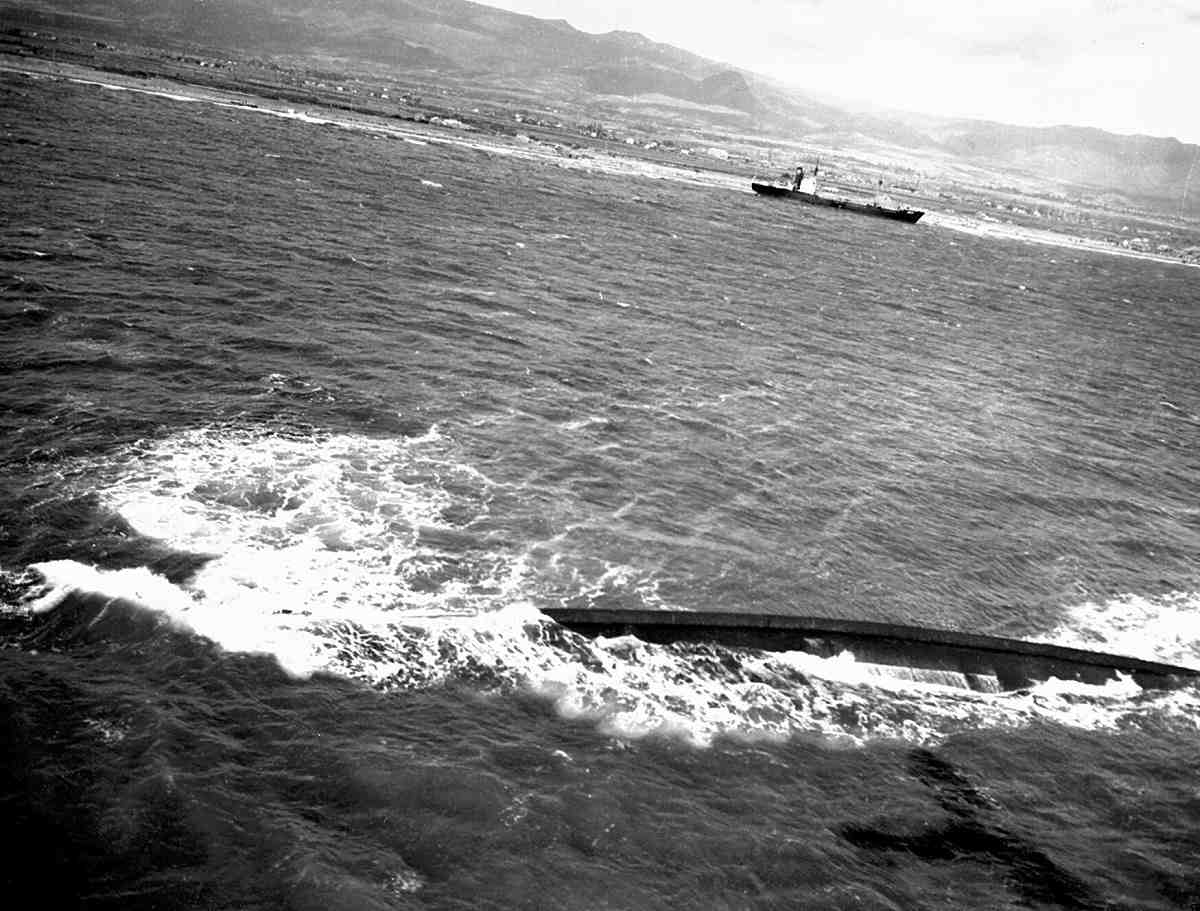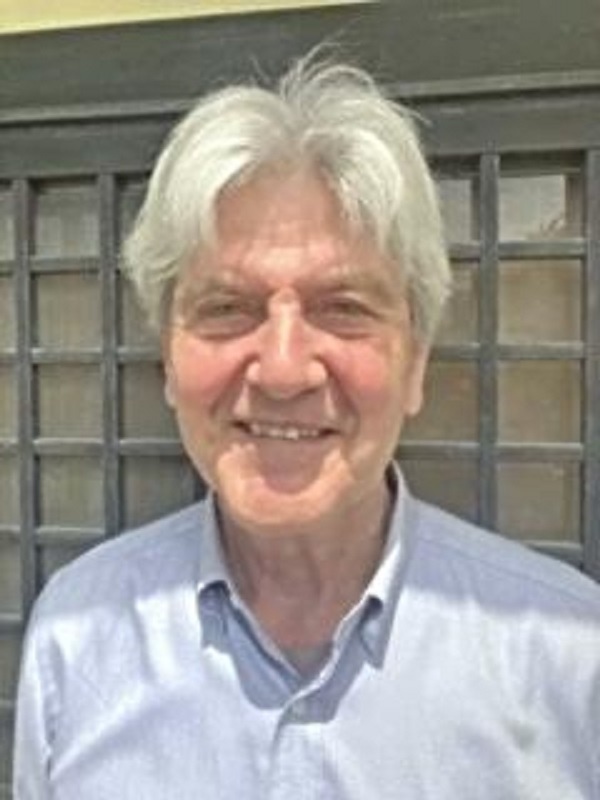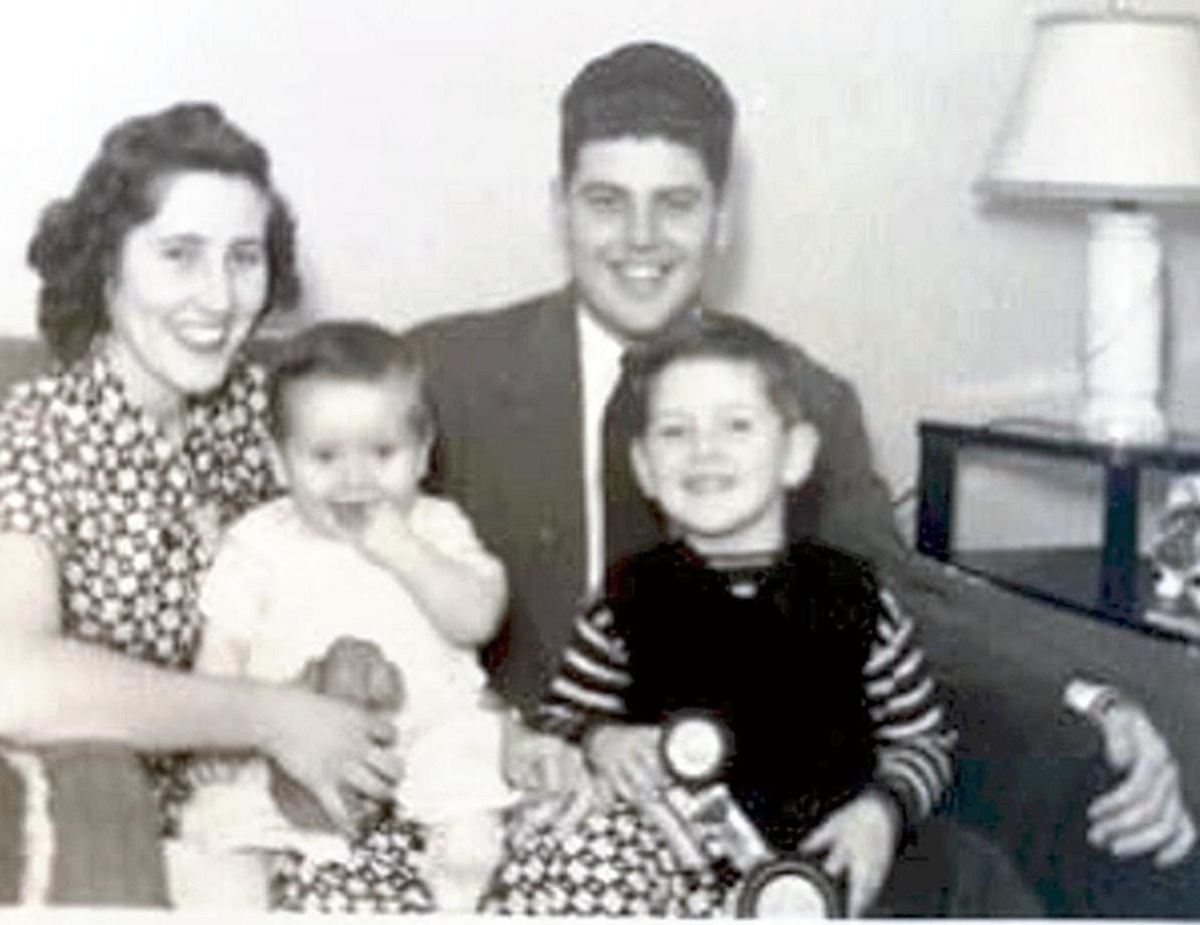Son Proud of U.S. Missionary Who Saved Child in Japan Ferry Disaster; 70 Years Have Passed Since Five Vessels Sank Off Hokkaido

The hull of the capsized Toya Maru ferry is seen in front in this photo taken on Sept. 26, 1954.
1:00 JST, September 27, 2024
SAPPORO — Thursday marked 70 years since five ferries capsized off Hokkaido in 1954 due to an approaching typhoon, a tragedy that took the lives of more than 1,400 people.
Among the 1,155 people who died aboard the Toya Maru was Dean Leeper, an American missionary who gave his life jacket to a Japanese child. Amid the chaos on the boat, Leeper acted in the spirt of self-sacrifice.
“I’m proud of my father, who refused to succumb to fear and helped those around him,” Leeper’s son Steven said in Japanese during an interview conducted with The Yomiuri Shimbun.
On Sept. 26, 1954, a number of vessels took refuge in Hakodate Bay to avoid an oncoming typhoon. Gale force winds and tidal waves capsized five ferries connecting Hakodate and Aomori in what became the worst maritime disaster in Japan’s history, with 1,430 people killed or missing.
There were 202 survivors, including 159 on the Toya Maru. The catastrophe prompted the planning of the Seikan Tunnel, an undersea passage connecting the main island of Honshu and Hokkaido.
Dean Leeper, 33 at the time, was working in Japan to promote the Young Men’s Christian Association. He boarded the Toya Maru to go to Sendai after finishing his activities in Hokkaido.

Steven Leeper
Steven is now 76 and lives in Atlanta. He was only 6 years old when the fatal disaster occurred.
Told by his mother that Leeper had died on the boat, the little boy could not accept it. His father, a navy veteran, was an excellent swimmer and Steven thought he must have survived.
Yet his father was not there at a school event for fathers and children, and Steven was overwhelmed with grief and loneliness as he watched his classmates casually laughing with their fathers.
Steven’s heart was on the verge of breaking, but he was comforted when he heard about the last moments of his father’s life. As passengers screamed and children cried, Leeper tried to soothe those around him by doing magic tricks, which he was good at. Just before the ferry sank, he put his life jacket on a Japanese child.
His kindness and bravery were witnessed and described by another missionary and other survivors who were rescued. Leeper’s actions were also documented by writer Junichiro Uemae in his non-fiction work “Toya Maru wa naze shizundaka” (Why Toya Maru sank) and have been passed on for generations.

Dean Leeper, top right, holds his son, Steven, front right, in this family photo.
Steven Leeper came to Japan in 1984 and became involved in organizing exhibitions at the Hiroshima Peace Memorial Museum in Hiroshima and in translating accounts by hibakusha atomic bomb survivors. In 2007, he became the first American to be appointed chairperson of the Hiroshima Peace Culture Foundation, which operates the museum.
Like his father, he has served as a bridge between Japan and the United States.
“Think about others when taking action. This helps avoid war and protect people’s lives,” Steven said.
Steven feels that a growing number of people do not know about the Toya Maru disaster now, due to the passage of time, just as memories of the atrocities of war and the atomic bombings become distant.
“I hope people won’t forget my father, who saved the life of another person by sacrificing his own,” Steven told the Yomiuri.
Top Articles in Society
-

Producer Behind Pop Group XG Arrested for Cocaine Possession
-

Man Infected with Measles Reportedly Dined at Restaurant in Tokyo Station
-

Man Infected with Measles May Have Come in Contact with Many People in Tokyo, Went to Store, Restaurant Around When Symptoms Emerged
-

Woman with Measles Visited Hospital in Tokyo Multiple Times Before Being Diagnosed with Disease
-

Australian Woman Dies After Mishap on Ski Lift in Nagano Prefecture
JN ACCESS RANKING
-

Producer Behind Pop Group XG Arrested for Cocaine Possession
-

Japan PM Takaichi’s Cabinet Resigns en Masse
-

Man Infected with Measles Reportedly Dined at Restaurant in Tokyo Station
-

Israeli Ambassador to Japan Speaks about Japan’s Role in the Reconstruction of Gaza
-

Videos Plagiarized, Reposted with False Subtitles Claiming ‘Ryukyu Belongs to China’; Anti-China False Information Also Posted in Japan






















